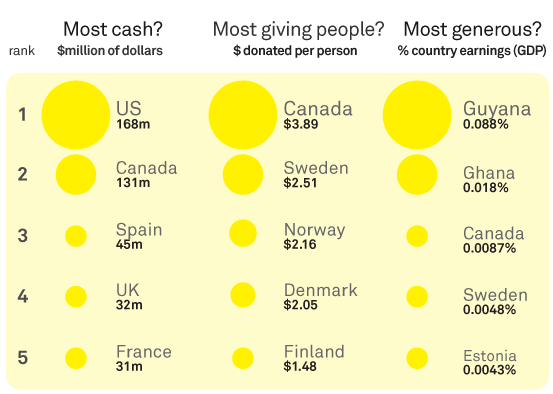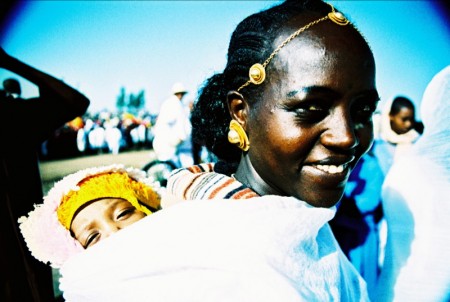
The Haiti earthquake has become the new measure of generosity.
The country’s big northern neighbours have earned much praise for their effort: The US has pledged $168 million to date, and Canada $131 million. The bronze medal goes to Spain, with ‘only’ $45 million, although the latest data from ReliefWeb indicates that Saudi Arabia has caught up.
But data journalist David McCandless puts things into perspective: Measured as a percentage of GDP, the most generous countries in the Haiti crisis have been… Guyana and Ghana! Canada and all Nordic countries make it to the top ten in this wealth-corrected ranking as well, but not Uncle Sam.
Beyond its primary purpose of disaster relief, the donation campaign has lifted Haiti out of the realm of forgotten poverty-stricken nations. This is a chance for the country, but I am worried about two potential pitfalls.


